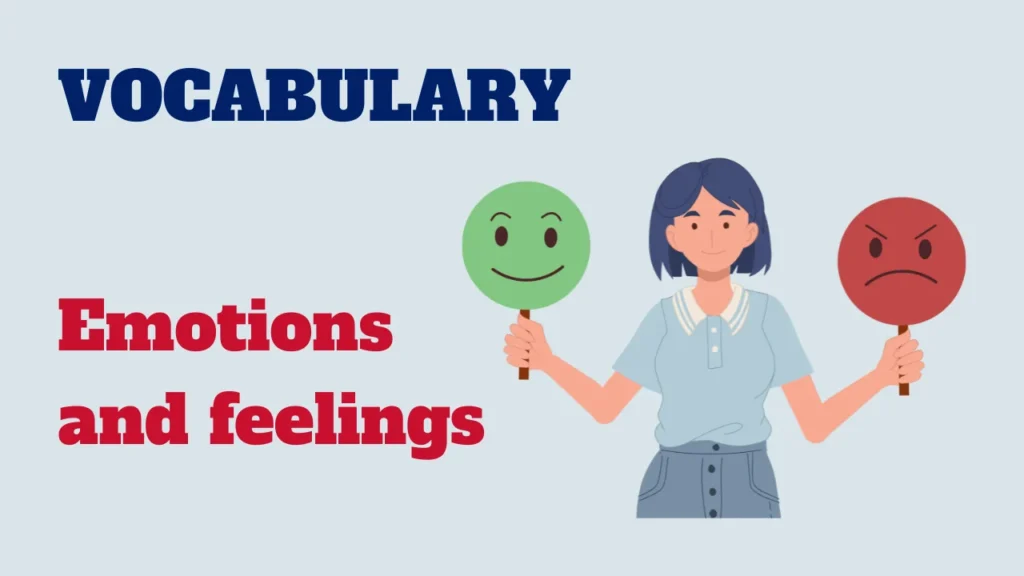Describing emotions and feelings is an integral part of effective communication.

This vocabulary lesson explores words related to a range of emotions, helping you express yourself more precisely in various situations.
Emotions and feelings vocabulary
- Happy: Feeling joy, contentment, or pleasure.
- Sad: Feeling sorrow, unhappiness, or grief.
- Angry: Feeling strong displeasure or hostility.
- Surprised: Feeling astonishment or unexpectedness.
- Excited: Feeling enthusiastic, eager, or stimulated.
- Nervous: Feeling uneasy, anxious, or worried.
- Calm: Feeling peaceful, composed, or relaxed.
- Stressed: Feeling mental or emotional strain.
- Confused: Feeling bewildered or lacking clarity.
- Bored: Feeling uninterested or weary due to lack of stimulation.
- Frustrated: Feeling annoyed or discouraged when goals are hindered.
- Loved: Feeling affection, warmth, or deep care.
- Jealous: Feeling envious or resentful of someone else’s advantages.
- Proud: Feeling a sense of accomplishment or satisfaction.
- Embarrassed: Feeling self-conscious or ashamed.
- Curious: Feeling eager to know or learn something.
- Guilty: Feeling remorseful for a perceived offense or wrongdoing.
- Hopeful: Feeling optimistic or positive about the future.
- Disappointed: Feeling let down or disillusioned.
- Amused: Feeling entertained or finding something funny.
Congratulations on expanding your vocabulary related to emotions and feelings! These words will help you articulate your internal states more accurately, fostering better understanding in your interactions. Practice using them in various contexts to strengthen your language skills. Stay tuned for more vocabulary lessons on our language-learning journey!
Learn English
Share this 👉 https://quickglish.net/53gh



